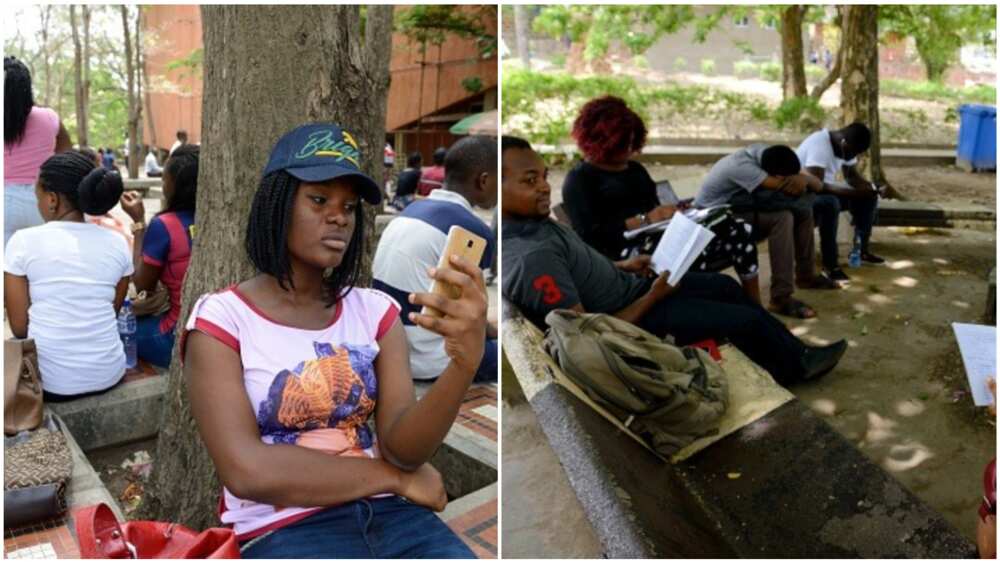How to Benefit from the Student Loan Bill Passed by National Assembly
The House of Representatives recently passed the Student Loan Bill, which was sponsored by the Speaker, Femi Gbajabiamila, in 2019.
PAY ATTENTION: Сheck out news that is picked exactly for YOU ➡️ find the “Recommended for you” block on the home page and enjoy!
The bill enables students to access interest-free loans from the Nigerian Education Bank, which the bill seeks to establish.

Source: Getty Images
Gbajabiamila explained that he decided to sponsor the bill in a bid to improve Nigeria's poor state of tertiary education.
The Green Chamber, after passing the bill, forwarded the bill to the Senate, which has also now passed.
What remains is to send a clean copy of the passed bill to President Muhammadu Buhari for his assent. When the president assents to the bill, it becomes a law, and the implementation will follow.
PAY ATTENTION: Subscribe to Digital Talk newsletter to receive must-know business stories and succeed BIG!

Read also
Confusion as Obasanjo speaks on where Nigeria's next 20 million Boko Haram recruits will emerge from
What are the functions of the Nigerian Education Bank?
The bill titled “Students Loan (Access to Higher Education) Bill 2019 will provide easy access to higher education for Nigerians through interest-free loans from that the Nigerian Education Bank, which the Act will establish upon the presidential assent.
- The Nigerian Education Bank will have the power to supervise, coordinate, administer, and monitor the management of student loans in Nigeria
- It will receive applications for student loans through higher institutions in Nigeria on behalf of the applicants
- The bank will also screen applications to ensure that all the requirements for the grant of students loan under the Act are fully satisfied
- It will also have the power to approve and disburse loans to qualified applicants
- The bank will also have the power to control, monitor and coordinate the students' loan account/fund and ensure compliance regarding disbursement.
- It will also monitor the academic records of students to obtain information on their year of graduation, national service, and employment to ensure they start repayment of the loan as and when due.
Students Loan Bill: What students need to know
All students who want to access the loans will have equal rights, and nobody will experience discrimination.
The loans granted to students are only for the payment of tuition fees and are subject to the applicants (students) satisfying the stated requirements and conditions.
How can students apply for the loan?
To be able to access the loan, students must meet the following conditions:
- Applicants must be students of any tertiary institution in Nigeria.
- They will provide at least two civil servants who will act as guarantors, the guarantors must have spent a minimum of 12 years in service or a lawyer who has at least 10 years post-call experience, Judicial officer, or Justice of Peace.
- Students who have been convicted of crimes cannot apply for the loan
- Students who default on previous loans or those found guilty of exam malpractices, felony, drug offences will not be eligible for the loan.
- Students with parents who did not repay previous loans will not be considered
- Beneficiaries of the loan will pay back two years after completing the compulsory National Youth Service Corps (NYSC). Repayment will be a direct deduction of 10% from the beneficiaries' salaries.
- If the beneficiary is self-employed, he or she will remit 10% of their total profit monthly to the Student loan account provided by the Nigerian Education Bank.
- To access the loan, students will apply to the chairman of the bank through their schools.
- All Applications will be submitted through the Students Affairs Office of each Institution through the list of qualified applicants from that institution.
- Applicants must use a cover letter signed by the Vice-chancellor or Rector or the head of the institution and the student affairs.
- Once the loan is approved, the bank will pay directly to the school account; students will not be given cash
- The process of application must be within 30 days of submission
Note: The process explained here cannot be implemented until President Buhari signs the bill into law.
ASUU: Another strike looms as union members stage protest
In another report, members of the Academic Staff Union of Universities (ASUU), the University of Ibadan branch, recently protested what they described as a failure of the federal government to meet the agreement with the union.
In a viral video sighted by Legit.ng on social media, members of the union were seen parading the streets of Ibadan with banners, placards, and megaphones protesting for government to fulfil their promise regarding the last meeting between both parties that led to the resumption of lecturers.
The chairman of the union at the University of Ibadan, Professor Ayoola Akinwole, said the peaceful protest was against the victimisation of its members by the administration of President Buhari.
Source: Legit.ng


